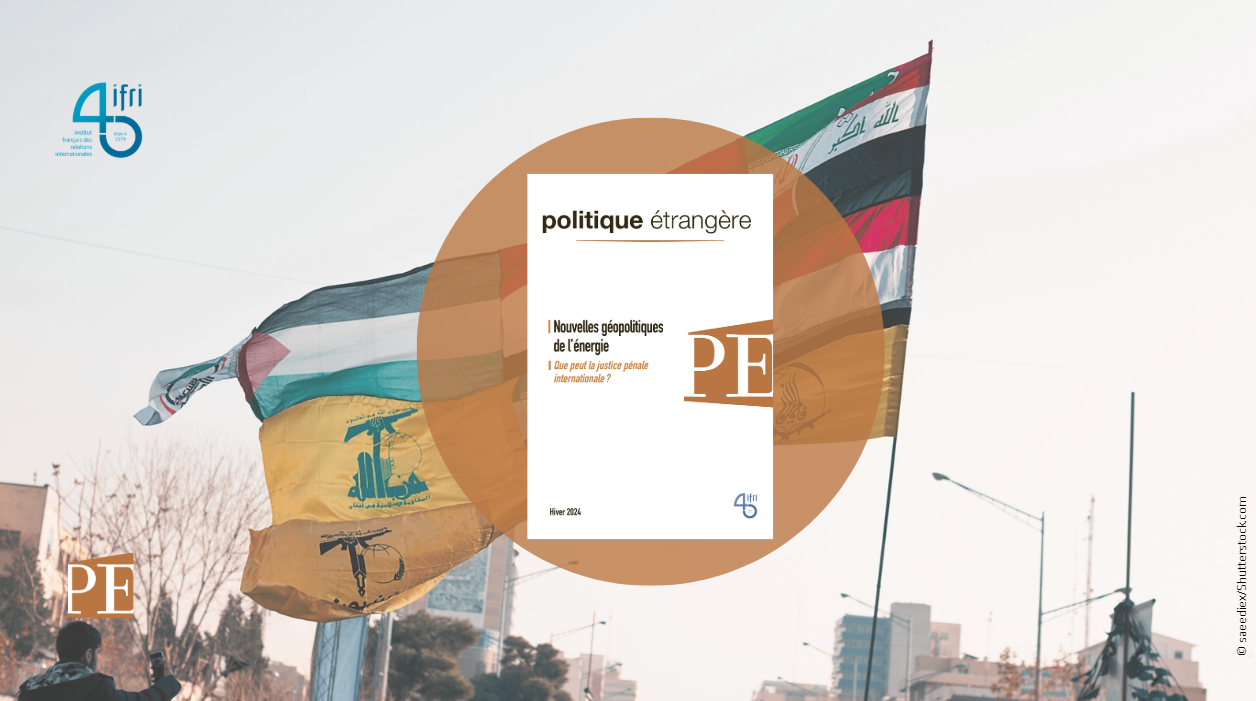The Axis of Resistance: Iran's Proxies since October 7, 2023

The term “Axis of Resistance” refers to the coalition of Iranian proxies in the Middle East. Since Hamas's attack on Israel on October 7, 2023, there has been noticeably greater coordination among these groups, at times without the direct involvement of Tehran. Iraq and Syria are important hubs where members of the Axis meet, exchange ideas, and plan actions. Russia, as part of its continuing struggle against the West, has moved closer to Iran and also to its proxies.

Kévin Thiévon is political advisor for the Chammal Operation and the NATO Mission in Irak.
Article published in French only in Politique étrangère, Vol. 89, No. 4, Winter 2024.
Find out more
Discover all our analysesForeword
In this special issue of Foreign Policy devoted to the proceedings of the conference organized by Ifri on April 10, 2019, in the Grand Amphitheater of the Sorbonne, on the occasion of its fortieth anniversary, read the foreword by Thierry de Montbrial, founder and president of Ifri.
Conclusions
In this special issue of Politique étrangère devoted to the proceedings of the conference organized by Ifri on April 10, 2019, at the Grand Amphitheater of the Sorbonne, on the occasion of its 40th anniversary, read the speech by Jean-Yves Le Drian, French Minister of Europe and Foreign Affairs.
New Global Challenges and European Security
In this special issue of Politique étrangère devoted to the proceedings of the conference organized by Ifri on April 10, 2019, in the Grand Amphitheater of the Sorbonne, on the occasion of its fortieth anniversary, discover the debate moderated by Nicole Gnesotto between Julian King, Jean-Marie Guéhenno, Wolfgang Ischinger, Nathalie Tocci, Hubert Védrine.
Industry Response to New Protectionism
In this special issue of Politique étrangère devoted to the proceedings of the conference organized by Ifri on April 10, 2019, in the Grand Amphitheater of the Sorbonne, on the occasion of its fortieth anniversary, discover the debate moderated by Thierry de Montbrial between Jean-Paul Agon and Patrick Pouyané.







